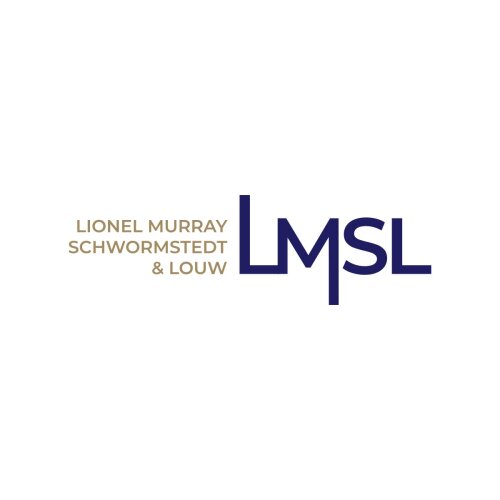Best Biotechnology Lawyers in South Africa
Share your needs with us, get contacted by law firms.
Free. Takes 2 min.
Or refine your search by selecting a city:
List of the best lawyers in South Africa
About Biotechnology Law in South Africa:
Biotechnology in South Africa is a rapidly growing field that encompasses various applications in areas such as agriculture, medicine, and the environment. The country has specific laws and regulations in place to govern the research, development, and commercialization of biotechnologies.
Why You May Need a Lawyer:
There are several situations where you may require legal assistance in the field of Biotechnology in South Africa. Some common scenarios include drafting or reviewing contracts related to biotechnological research or products, navigating intellectual property rights such as patents, handling regulatory compliance issues, and resolving disputes with other parties in the biotechnology sector.
Local Laws Overview:
Key aspects of local laws that are particularly relevant to Biotechnology in South Africa include the National Environmental Management: Biodiversity Act, the Intellectual Property Rights from Publicly Financed Research and Development Act, and regulations from the Department of Agriculture, Forestry and Fisheries. These laws govern aspects such as biosafety, genetic resources, intellectual property rights, and commercialization of biotechnological products.
Frequently Asked Questions:
1. What are the key regulatory bodies overseeing biotechnology in South Africa?
In South Africa, key regulatory bodies overseeing biotechnology include the Department of Agriculture, Forestry and Fisheries, the Department of Environment, Forestry and Fisheries, the Medicines Control Council, and the National Bioproducts Institute.
2. Are there specific guidelines for conducting biotechnological research in South Africa?
Yes, researchers conducting biotechnological research in South Africa must adhere to guidelines provided by the National Health Act, the National Environmental Management Act, and the Good Clinical Practice guidelines.
3. What are the requirements for obtaining a patent for a biotechnological invention in South Africa?
To obtain a patent for a biotechnological invention in South Africa, the invention must be novel, inventive, and capable of industrial application. The Patents Act governs the process of patent registration.
4. How can I protect my intellectual property rights in the field of biotechnology?
You can protect your intellectual property rights in the field of biotechnology by obtaining patents for inventions, trademarks for branding, and trade secrets for confidential information. It is advisable to work with a lawyer experienced in intellectual property law to help you navigate this process.
5. What are the penalties for non-compliance with biotechnology regulations in South Africa?
Penalties for non-compliance with biotechnology regulations in South Africa can vary depending on the specific violation but may include fines, suspension of research activities, or in severe cases, criminal charges.
6. How can a lawyer help me with drafting contracts related to biotechnological products?
A lawyer experienced in biotechnology law can help you draft contracts related to biotechnological products by ensuring that the terms are clear, enforceable, and protect your interests. They can also help you negotiate favorable terms with other parties.
7. What is the process for obtaining regulatory approval for biotechnological products in South Africa?
The process for obtaining regulatory approval for biotechnological products in South Africa involves submitting an application to the relevant regulatory body, providing supporting data on the safety and efficacy of the product, and undergoing a thorough review process. A lawyer can assist you with navigating this process.
8. Are there any tax incentives available for biotechnology companies in South Africa?
Yes, there are tax incentives available for biotechnology companies in South Africa, including deductions for research and development expenses and incentives for investments in certain biotechnology projects. Consult with a tax lawyer to learn more about these incentives.
9. Can I transfer my biotechnological research or products to international markets?
Yes, you can transfer your biotechnological research or products to international markets, but you must comply with the regulations of the destination country. A lawyer with experience in international trade and biotechnology can help you navigate this process.
10. How can I resolve disputes with other parties in the biotechnology sector?
If you encounter a dispute with other parties in the biotechnology sector, it is advisable to seek legal assistance to help you negotiate a resolution. Alternative dispute resolution methods such as mediation or arbitration may be utilized to resolve conflicts outside of court.
Additional Resources:
For additional resources related to Biotechnology in South Africa, you can refer to the South African Medical Research Council, the Council for Scientific and Industrial Research, and the Department of Science and Innovation.
Next Steps:
If you require legal assistance in the field of Biotechnology in South Africa, it is recommended to consult with a lawyer who specializes in this area of law. You can contact the Law Society of South Africa for a referral to a qualified attorney or conduct research to find a lawyer with experience in biotechnology law and intellectual property rights.
Lawzana helps you find the best lawyers and law firms in South Africa through a curated and pre-screened list of qualified legal professionals. Our platform offers rankings and detailed profiles of attorneys and law firms, allowing you to compare based on practice areas, including Biotechnology, experience, and client feedback.
Each profile includes a description of the firm's areas of practice, client reviews, team members and partners, year of establishment, spoken languages, office locations, contact information, social media presence, and any published articles or resources. Most firms on our platform speak English and are experienced in both local and international legal matters.
Get a quote from top-rated law firms in South Africa — quickly, securely, and without unnecessary hassle.
Disclaimer:
The information provided on this page is for general informational purposes only and does not constitute legal advice. While we strive to ensure the accuracy and relevance of the content, legal information may change over time, and interpretations of the law can vary. You should always consult with a qualified legal professional for advice specific to your situation.
We disclaim all liability for actions taken or not taken based on the content of this page. If you believe any information is incorrect or outdated, please contact us, and we will review and update it where appropriate.
Browse biotechnology law firms by city in South Africa
Refine your search by selecting a city.















